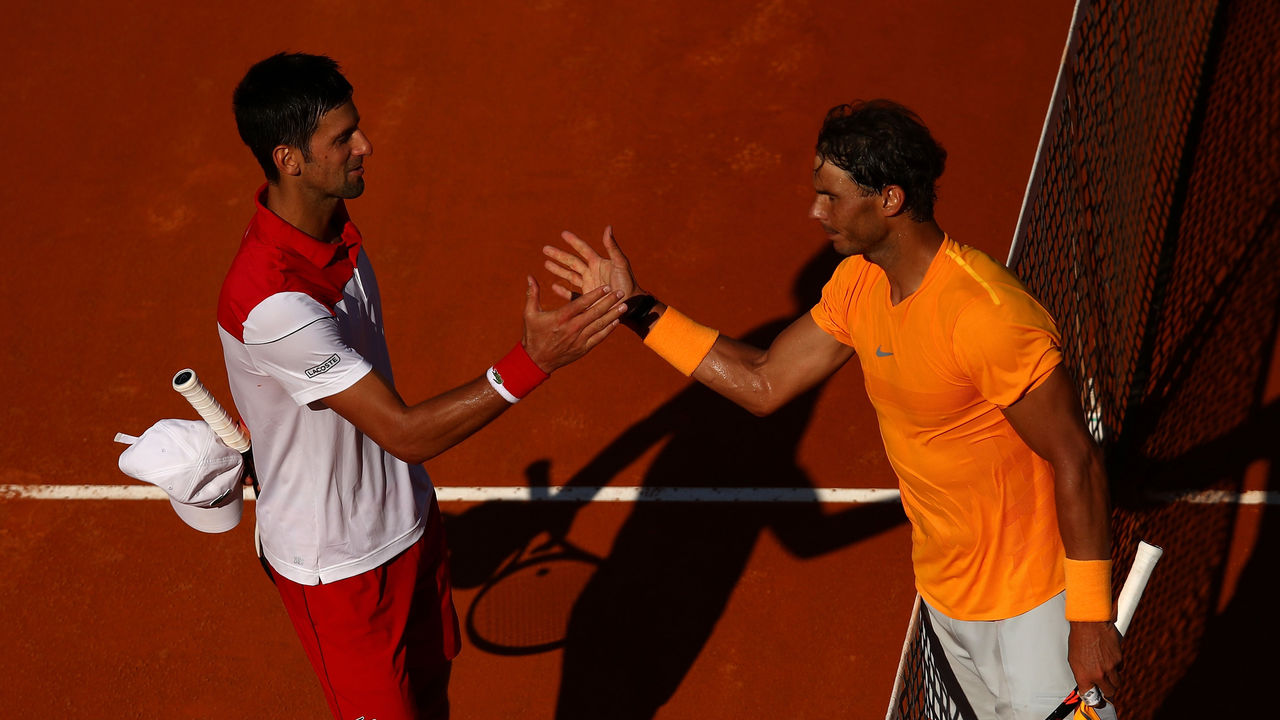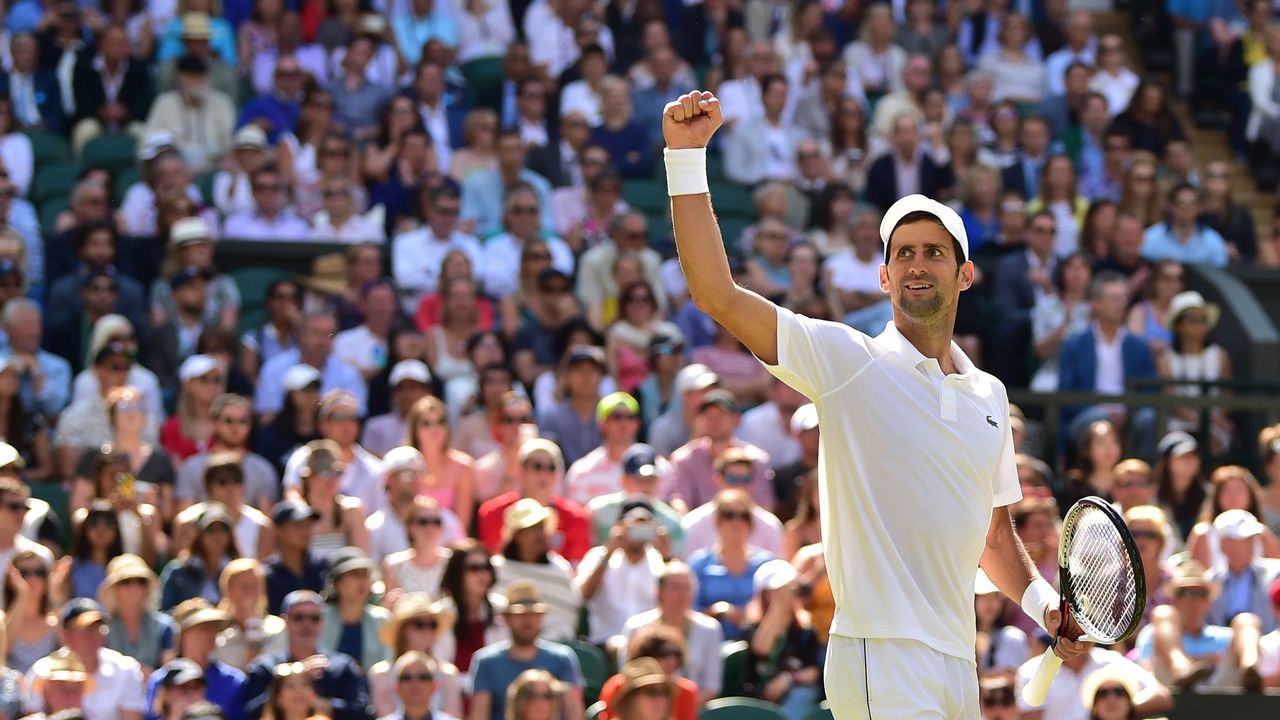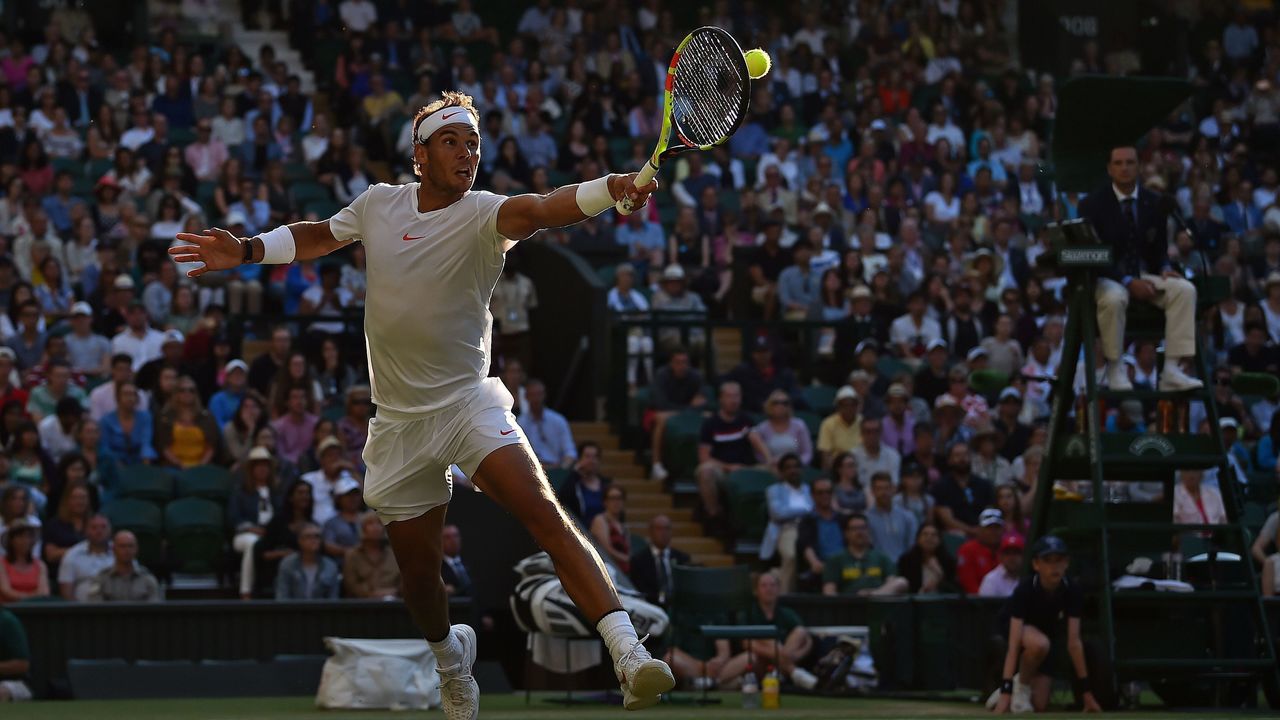Why the 52nd edition of Nadal-Djokovic could be an all-timer
Dreams of a 2008 redux at Wimbledon may have been quashed, but don't let that kill your appetite for golden-age tennis nostalgia. No, we won't get a Rafa Nadal-Roger Federer final a decade after they authored what many consider the greatest men's tennis match of all time on Centre Court. But we will get another chapter in a different storied rivalry that has, at its best, been every bit as good.
Nadal and Novak Djokovic will square off for the 52nd time in the semifinals Friday, adding to what was already, by far, the most prolific head-to-head of all time. They could not have played each other closer to a draw in their first 51 meetings, with Djokovic winning 26 to Nadal's 25. And those 51 meetings have included some of the most intense, grueling, high-quality matches we've ever seen. Recall the 2012 Australian Open final, in which both guys seemed to get stronger as the marathon match went on, as it pushed deep into a fifth set and inched toward an unprecedented seventh hour; or the hypnotic third set of the 2011 US Open final, or the frenzied 2013 French Open semi that went to 9-7 in the fifth.
Their rivalry has lost steam in recent years, though, because the two have rarely been at their best at the same time. In 2015, and the first half of 2016, when Djokovic was obliterating everything in sight, Nadal was mired in the worst slump of his career, unable to offer up much of a challenge on the rare occasions he advanced far enough to meet Djokovic, even at his beloved Roland Garros. Then, just as Nadal began his astonishing resurgence some 18 months ago, Djokovic came apart at the seams, derailed by injuries and some inscrutable mental block. As a result, they've played just twice in the past two years, and Nadal won handily both times. Their last nine matches have all been decided in straight sets, producing scant drama and middling quality.

It says here that's going to change Friday. Nadal's been performing at or close to his peak level since his bounce-back kicked off in earnest at last year's Aussie Open, and he's shown no slippage at Wimbledon, where he's playing in the second week for the first time since Djokovic beat him in the 2011 final. It's harder to peg which version of Djokovic we're going to get, but this tournament has showcased some of his best tennis since 2016. He's shown flashes of this level at various points since then, but not for such a sustained period. With each match, his footwork has looked more fluid, his groundstrokes tighter, his shot-making bolder, his confidence and moxie returning in slightly fuller force.
He still doesn't quite look like the Djokovic of old; he's still missing the consistency, the opportunistic savagery, the mental durability on big points. But his quarterfinal match against Kei Nishikori may have been a turning point. Tied at a set apiece, and serving at 2-2 in the third, Djokovic went down triple break point, then summoned his ferocious dark energy, stormed back to hold, broke Nishikori the next game, and didn't look back.
He played freer and looser from there, winning the final two sets 6-2 and 6-2. He stubbornly held the baseline, ripped some huge cross-court forehands on the full stretch, mixed in a few deft and timely drop shots, opened up the court with acute angles, and kicked up chalk with down-the-line backhands; the full Djokovician arsenal. Even if the finishing flourish owed something to a Nishikori arm injury, it was heartening to watch Djokovic rediscover his mean streak.

"I feel if I have to compare the game that I've played, the level of tennis that I've had those years and today, I think it's pretty close," he said after the match. "Again, it's kind of hard to copy anything, right? I don't like that. I know, as everything in life, we are evolving. I'm a different person, different player today.
"I like the level of tennis that I'm playing on right now. I really do. I think with the performances I've had, I deserve to be in the semifinals. I don't want to stop here. I hope I can get a chance to fight for a trophy."
He'll have to be every bit as good as he was in those last two sets to beat Nadal, who has won 35 of the 36 completed matches he's played this year. Djokovic will at least have the benefit of a slight rest advantage, as Nadal's coming off a near-five-hour epic against Juan Martin del Potro.
But that match also crystallized just how brilliantly Nadal has been playing on grass courts that aren't particularly favorable to his game. The Spaniard not only parried Del Potro's monstrous forehands that accelerated through the slick surface, not only curled in some ungodly running forehands of his own, he played attacking tennis that meant venturing beyond his comfortable baseline stronghold.
Nadal's approach game in that match was deadly; he came forward nearly twice as many times as Del Potro did, and won 36 of 47 points at the net, including a handful of successful serve-and-volleys on big kickers out wide. Net play has always been an underrated feature of Nadal's game, mainly because he employs it so selectively. His matches against Djokovic have typically been decided by interminable exchanges from the back of the court, but, while Djokovic is a better passer than Del Potro, Nadal could change the dimension of this one with a sustained commitment to the approach.

Whatever happens, if each player carries over his form from the previous match, this semifinal has a chance to be an epic. After 51 head-to-heads, there aren't many secrets left between them, but Nadal's and Djokovic's styles complement each other so well that they're bound to produce electrifying tennis so long as both play like they're capable of playing. At their best, both defend so masterfully, and turn defense to offense so quickly, that it's nigh impossible to tell who's even winning a point at any given time. Each will probe and try to tease out the weaknesses of the other, and sometimes neither will find any weakness to expose. Sometimes they'll end up whacking the ball back and forth 54 times in a row.
The appreciation of tennis is rarely individualistic. Tennis is a dance, equal parts competition and partnership, its aesthetic appeal dependent on the cooperation of both participants. Nadal and Djokovic have played beautiful tennis on their own, but together they've made magic.
It's impossible to say whether they'll produce more of it on Friday, but, to paraphrase Beyonce, sometimes s--- goes down when there's 29 Grand Slams on Centre Court.
HEADLINES
- Djokovic cuts ties with players' group he co-founded due to concerns over transparency, governance
- 26 stories we're most excited about for 2026 (Part 1)
- Kyrgios beats Sabalenka in latest 'Battle of the Sexes'
- World No. 10 Draper not ready to return for Australian Open
- 3-time major winner Wawrinka announces 2026 as final year on tour